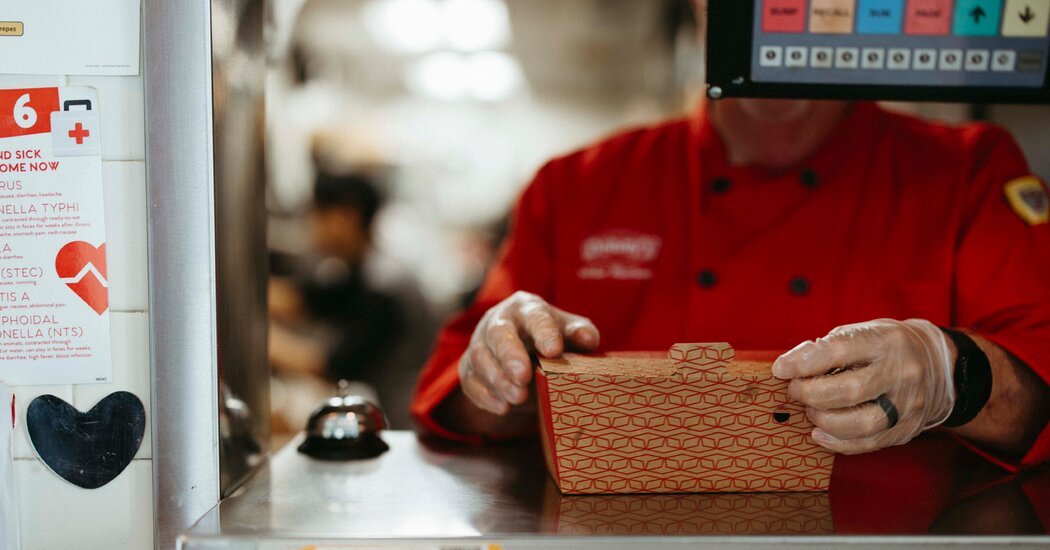
On a recent afternoon, the kitchen inside a Denny’s in the Jackson Heights neighborhood of Queens was bustling.
Employees placed burger patties on a grill and pulled fries out of the vat of hot oil. Some orders were whisked away to customers sitting in booths, while others were boxed and set aside for pickup. The takeout orders were mostly from the Denny’s menu, but some were from the Burger Den and the Meltdown, two delivery-only brands that the chain owns.
The strategy of maximizing kitchen resources blossomed during the Covid pandemic, when restrictions shut down indoor dining and customers ate more meals at home. As their kitchens sat idle, many restaurants across the country, desperate for revenue, switched to delivery mode.
The result was an explosion in the growth of the so-called ghost kitchen and its close cousin, the virtual brand, or a restaurant that has no physical space and operates online only. Seemingly overnight, catering venues and restaurants alike turned into ghost kitchens, offering foods and meals for delivery only. At the same time, celebrities, influencers and others created their own virtual brands. Mariah Carey offered cookies, George Lopez put his name on tacos, and Wiz Khalifa’s menu included bowls of chicken nuggets over macaroni and cheese.
Investors plowed billions of dollars into the space, and start-ups and established companies made plans to expand. Some Kroger stores had ghost kitchens, and Wendy’s announced plans in 2021 to open 700 delivery-only locations. That year, the commercial real estate company CBRE predicted that ghost kitchens would account for 21 percent of restaurant sales by 2025.




